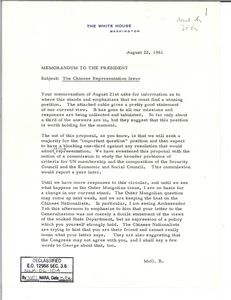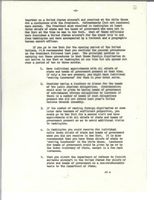If there is one book you should read this year, read this. It is an old one (1969) but is has stood the tests of time.
David Habersham shows you how easy it is for a country to get involved in a war, that they knew from start can’t be won. It paints a portrait of the main characters of the men who got the Kennedy Administration involved in the Vietnam war.
The book was written to answer a basic question. “Why men who were said to be the ablest to serve in government in this century had been the architects of what struck me as likely to be the worst tragedy since the Civil War”.
It is worth reading as a remarkable insight into the operation of government.
A useful lesson leaps out from every page. It needs to be read by anyone interested in the operation of government. It helps you understand the frailties of human judgment.
25 Useful lessons
I have listed some of the pieces I enjoyed; indicating in a bold header the lesson I took.
- Have the golden boys done anything real?
Sam Rayburn to LBJ’s remark about the brilliance of the Kennedy Cabinet:
“Well, Lyndon, you may be right and they may be every bit as intelligent as you say, but I’d feel a whole lot better about them if just one of them had run for sheriff once”
2. Use expertise from beyond a closed circle
An administration which flaunted its intellectual superiority and its superior academic credentials made the most critical of decisions with virtually no input from anyone who had any poetries on the recent history of that part of the world
3. Have good managers on your team
Kennedy-Johnson team was that for all their considerable reputations as brilliant, rational managers, they were in fact very poor managers.
4. Serious scrutiny weeds out bad decisions
It (Vietnam) was an ill-defined commitment, one made in stealth and in considerable secrecy, because those making it were uneasy about their path and feared an open debate, feared exposing the policy to any serious scrutiny.
5. Avoid publicity
On Robert Lovett “He understood power, where it resided, how to exercise it. He had exercised it all his life, yet he was curiously little-known to the general public The anonymity was not entirely by chance, for he was the embodiment of the public servant – financier who is secure in his job, the value of it, his right to do it, that he does not need to seek publicity, to see his face on the cover of a magazine or on television, to feel re-assured, Discretion is better, anonymity is safer: his peers know him, know his role, know that he can get things done.
In a world like this, he knew that those whose names were always in print, who were always on the radio and television, were there precisely because they did not have power, that those who did hold or had access to power tried to keep out of sight. He was a twentieth-century man who did not hold press conferences, who never ran for anything. The classic insider’s man.
6. Avoid defeat
Kennedy would never risk political defeat on behalf of a great moral issue… Kennedy’s candor was private rather than public.
7. Why Liberals like being defeated
On liberals “since defeat was never a liberal dishonor; if anything, it was more of a decoration”.
8. Skills for government
On Chester Bowles – he lacked an ability to dissemble, he had no instinct for the jugular, he did not maneuver well at close hand
9. Be decent
Dean Rusk left few men with a bad impression. He was always courteous, hard working and thoughtful.
10. Image over substance
Hard-nosed realists – Kennedy Administration – their image was of virility; they played squash and handball to stay in shape, wrote books and won prizes, climbed mountains to clear their minds. Many of them read poetry and some were said to be able to quote it. … They did not go to many cocktail parties. They didn’t have time for that, for the idle chitchat.
11. Do you read and write
They had Maxwell Taylor, a good general, solider-statesman, an intellectual who read books avidly and had even written one.
12.Can you keep learning
McGeorge Bundy “he was brilliant at learning things in conversation, in absorbing. The great skill of his mind, the training in classics and maths allow him to see and understand how other people’s intellectual processes work
Bundy would instantly give the quickest, most incisive, most complete summing up imaginable.
13. Can you write clear memos
Mac was a terrific memo writer, facile, brief and incisive…. To be a good memo writer in government was a very real form of power.
14. Expertise is power
Bundy, sensing the vacuum, moved deftly to fill it. He bangs to build his own power, … an informal network in the government. he created an extraordinary staff, bright young men summoned from all areas of the government and academe.
Exhibited the rare quality in Washington of being able to evoke whatever excellence existed in a person. Every encounter was like a mini Ph.D. exam.
15. Need to think long-term
On Bundy, his thinking and performance were too functional and operation, he was not considering the proper long-range perspective, instead, he was too much the problem solver, the man who did not want to wait, who believed in action
16. Be brief the higher you go up
Harriman taught all his protégés always to brief when talking to the President; they have so little time, everyone is always telling them things, keep it short and simple, and brevity above all. One idea, a few brief sentences.
17. Style at the expense of substance
The US President paid great attention to style; style for him and for those around him came perilously close to substance. He did not like people who were messy and caused problems, nor did he like issues that were messy and caused problems.
18. Stupid decisions can be made knowing they are stupid
Non-recognition of China …. Kennedy would smile and agree and say yes, it was a stupid policy, but it would all have to wait. Until the second term
19. The dangers of not reporting the truth
The duty of a foreign service officer is to report the truth as he sees it without adjusting it American domestic considerations. … From then on young foreign service officer would learn their lessons and hedge their bets, and muddle their reporting.
20. Brilliance should be hidden
Eisenhower was a subtle man, and no fool; though in pursuit of his objectives he did not like to be thought of as brilliant; people of brilliance, he thought, were distrusted.
21. Denying it does not mean it is not real
Under Kenndy Administration, it was better to deny an issue, as then there is no issue, even if there is an issue
22. Why most academics don’t make it in the world of government
On Walt Rostow – A rare academic who knew how DC worked and was realistic. He could produce memos and ideas constantly. Good, quick, tart specific responses.
23. A good basis to avoid bad decisions
General Ridgway in his report on intervening maximized the risks and minimized benefits and so avoided war in Indochina.
24. How do deal with the French
Kennedy reprimand the French Ambassador by keeping him waiting and serving him a terrible lunch
25. A rare commodity in government
They might have been able to provide that rarest of contributions in government: real expertise at a high operational level.



